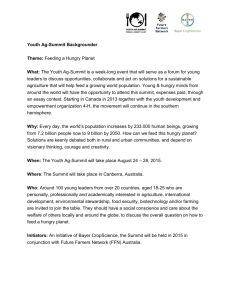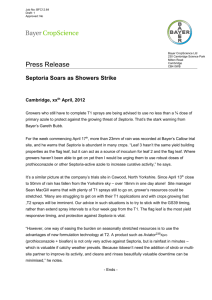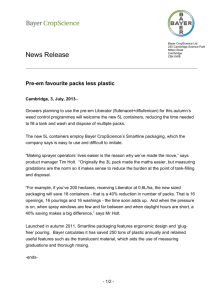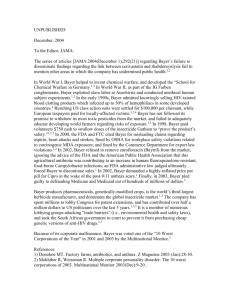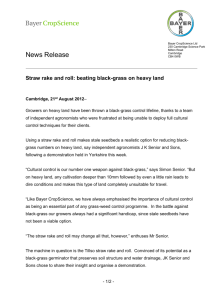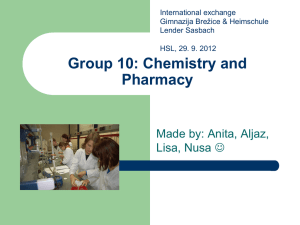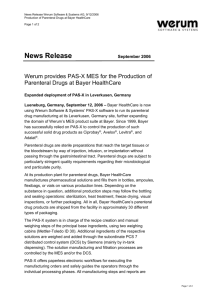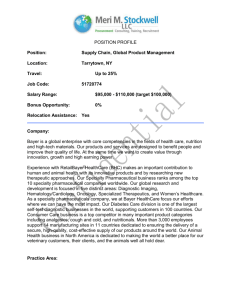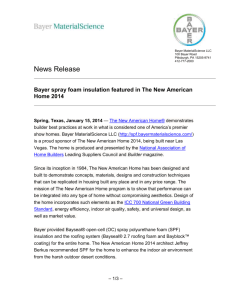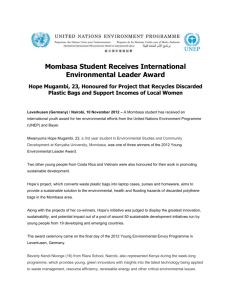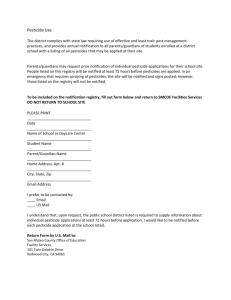Bayer response to “Toxic 100” ranking
advertisement
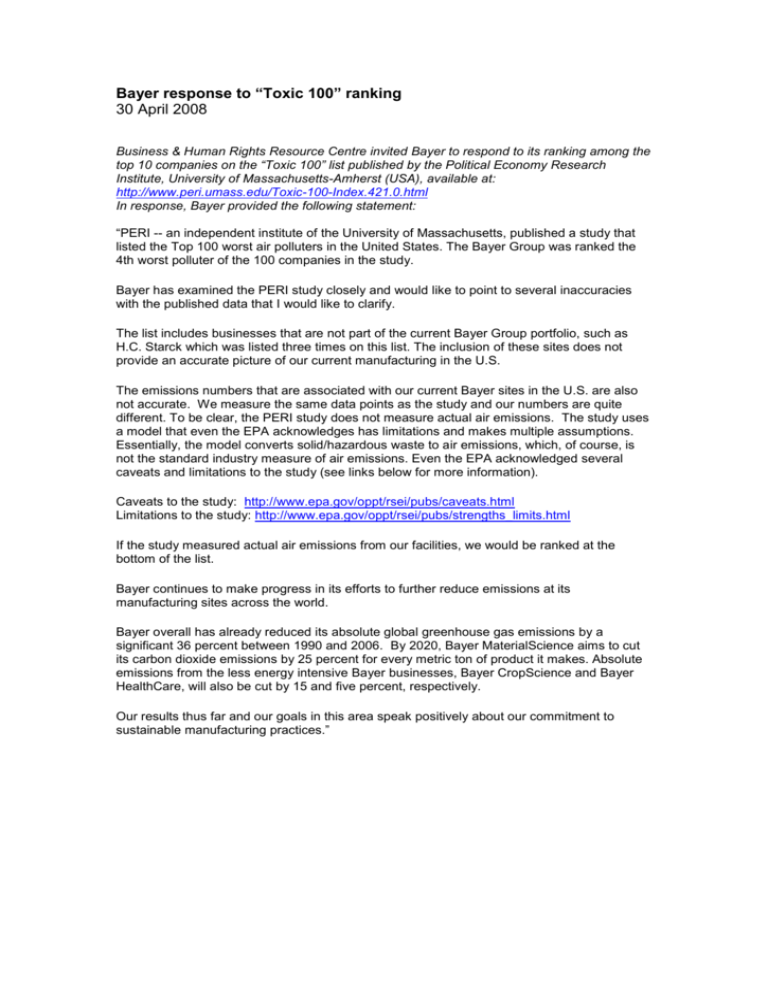
Bayer response to “Toxic 100” ranking 30 April 2008 Business & Human Rights Resource Centre invited Bayer to respond to its ranking among the top 10 companies on the “Toxic 100” list published by the Political Economy Research Institute, University of Massachusetts-Amherst (USA), available at: http://www.peri.umass.edu/Toxic-100-Index.421.0.html In response, Bayer provided the following statement: “PERI -- an independent institute of the University of Massachusetts, published a study that listed the Top 100 worst air polluters in the United States. The Bayer Group was ranked the 4th worst polluter of the 100 companies in the study. Bayer has examined the PERI study closely and would like to point to several inaccuracies with the published data that I would like to clarify. The list includes businesses that are not part of the current Bayer Group portfolio, such as H.C. Starck which was listed three times on this list. The inclusion of these sites does not provide an accurate picture of our current manufacturing in the U.S. The emissions numbers that are associated with our current Bayer sites in the U.S. are also not accurate. We measure the same data points as the study and our numbers are quite different. To be clear, the PERI study does not measure actual air emissions. The study uses a model that even the EPA acknowledges has limitations and makes multiple assumptions. Essentially, the model converts solid/hazardous waste to air emissions, which, of course, is not the standard industry measure of air emissions. Even the EPA acknowledged several caveats and limitations to the study (see links below for more information). Caveats to the study: http://www.epa.gov/oppt/rsei/pubs/caveats.html Limitations to the study: http://www.epa.gov/oppt/rsei/pubs/strengths_limits.html If the study measured actual air emissions from our facilities, we would be ranked at the bottom of the list. Bayer continues to make progress in its efforts to further reduce emissions at its manufacturing sites across the world. Bayer overall has already reduced its absolute global greenhouse gas emissions by a significant 36 percent between 1990 and 2006. By 2020, Bayer MaterialScience aims to cut its carbon dioxide emissions by 25 percent for every metric ton of product it makes. Absolute emissions from the less energy intensive Bayer businesses, Bayer CropScience and Bayer HealthCare, will also be cut by 15 and five percent, respectively. Our results thus far and our goals in this area speak positively about our commitment to sustainable manufacturing practices.”
